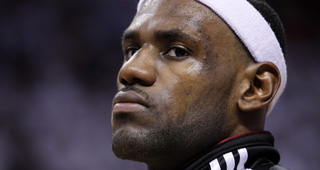The NBA owners have had three key issues during the NBA lockout.
First and foremost was to reduce player salaries. The players have already made a $3 billion concession over the proposed 10-year deal. Not only will owners pay players less, but their risk of making bad investments on players will be systematically reduced.
Second on the list is for smaller market teams to see an increase in revenue sharing from big market teams. Teams like the Knicks, Lakers and Bulls have cash cow local television deals that creates profitability imbalance problems for the Bucks that aren’t faced by their NFL counterparts in Green Bay where the national contract is the one and only king. If those big market teams reinvest their profits in player payroll above the luxury tax threshold, there will be greater penalties than the dollar-for-dollar system currently in place.
Coming in third, a close third for Adam Silver and a presumably distant third for David Stern, is competitive balance. Silver has long been a vocal proponent of competitive balance measures and he propagated that meme during Thursday’s press conference. If Silver becomes Stern’s successor as he clearly is being groomed at this point, one can only expect he will continue to take the NBA in this direction in future negotiations.
According to reporting from ESPN’s Chris Broussard, the NBA will raise the minimum team payroll from its current level of 75% of the salary cap to 90% after the second year of the new deal.
On the surface, this sounds like a positive situation for the players because small market teams will be unable to strip their teams and parasitically reap profits from big market teams as we have seen in Major League Baseball.
But the NBA is simultaneously lowering the salary cap on the other end and giving teams more punitive damage for being over the cap. A majority of teams were over the cap during the 10-11 NBA season and that excludes big market teams that were under the cap due to many years of getting under the cap for the free agent class of 2010.
The owners are eliminating the bell-shaped curve we currently see when looking at the payroll of 30 teams. The raising of the minimum is a classic diversionary technique since the real story is the math on the cap.
For the players, the bell-shaped curve of their 450 salaries is being flipped upside down.
Maximum-salaried players will continue to earn at a robust level. They will earn less than their true free market value, but they escape relatively unscathed.
Fringe players and those on the rookie scale also should not see their earnings greatly diminished.
The reduction of the mid-level exception and eventual inability for teams over the cap to complete sign-and-trades will decimate the NBA’s middle class financially because it restricts the climate for any semblance of a competitive open market for their services.
Beyond the purely financial issue of the NBA’s middle class enduring the same fate as the middle class of the United States as a whole, there is also the issue of how it will impact the play on the court. Jermaine O’Neal astutely commented on how the elimination of the NBA’s middle class would severely individualize the play on the floor.
The perception that the NBA game is too heavily reliant on isolation scoring is already a criticism we hear from college basketball enthusiasts. This system could have the unintended consequence of creating an entire league of stat-minded chuckers and those that will stop at nothing to get their triple-double.
Russ Bengtson lampooned Silver by saying he has “a proposal which involves each team winning an NBA title in alphabetical order.”
This system will be further based on having multiple superstars because building a great ‘team’ becomes downright impossible unless a franchise is bad for several consecutive seasons and hits multiple home runs as Sam Presti has with the Thunder.
The old system at least gave small market franchises like the Cavaliers and Magic a chance to recover from their lottery mistakes of Luke Jackson and Fran Vazquez by taking out second, third, fourth and fifth mortgages on the likes of Ben Wallace, Antawn Jamison, Shaquille O’Neal, Gilbert Arenas, Jason Richardson, etc.
Because Derek Fisher and Billy Hunter have made the same mistakes of Barack Obama by unrealistically expecting the owners to bring a comparable level of compromise to negotiations and declining to come out swinging in July, they are out of productive options. They are unlikely to win a decertification war that many players can probably not afford to fight, taking a bad deal is their best option.
The players are unfortunately faced with an exceptionally easy choice and a horribly bitter pill.



